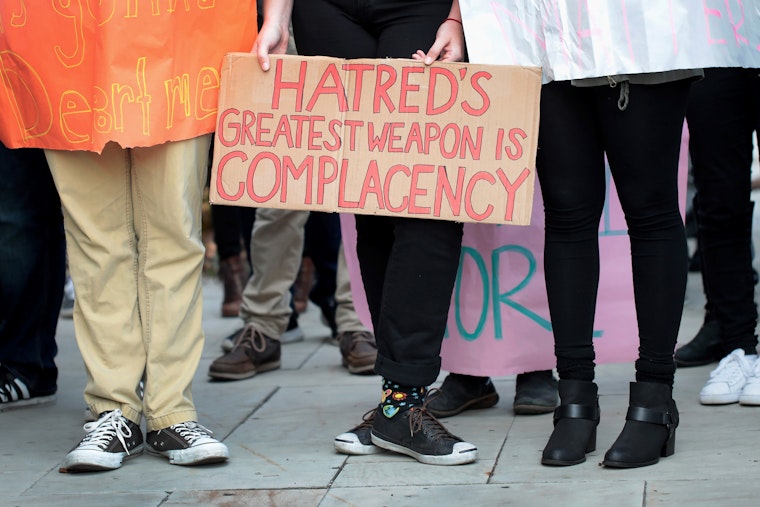Against Ambivalence
By Chris Stone

We begin 2017 surrounded by uncertainty in every dimension of public life. It is not just the uncertainty of an incoming U.S. president apparently without any firmly held beliefs, or the uncertain viability of the European Union, or the uncertain leadership of the Democratic Republic of Congo (where President Kabila has overstayed his constitutional term without holding further elections), or of Jakarta, Indonesia (where Governor Ahok Purnama, a member of the Christian minority, is currently on trial, charged with insulting Islam and desecrating the Quran). The uncertainty surrounding us goes well beyond global politics to the reliability of institutions, of ethical norms, of facts, of truth.
Yet pervasive uncertainty must not excuse indecision. It does not excuse any weakening of our commitments to open societies, to democratic practice, to shared prosperity, to justice, freedom, and human rights.
On the night of Donald Trump’s election, I was in Jakarta with members of Open Society’s Tifa Foundation, 12 hours ahead of my U.S. colleagues. Even watching from halfway around the world, the U.S. election results felt like a powerful body blow, painful and disorienting. I needed time to recover my balance, adjust my stance, and prepare to hit back. But hit back against what?
A few days later, sitting with George Soros and a few colleagues, our first target quickly came into focus: the hate-filled assaults, threats, and screams unleashed by the rhetoric of Trump’s successful campaign. Open Society’s U.S. Programs mounted an entirely new rapid-response grant program to support community organizations nationwide in a campaign against hate. It was a first, heartening demonstration of decisive action in the face of uncertainty. Already in these first days of January, we are sending funds out across America to groups we had not even heard of on election night.
The same spirit and commitments give rise to three priorities for the Open Society Foundations globally in 2017.
First, we need to understand and engage the new cyberpolitics. The categories of “fake news,” “social media,” and even “state-sponsored hacking” fail to capture the profound changes that big data, online profiling, and algorithmic targeting of political advertising have brought to elections and political debates. Citizens are being manipulated, even brainwashed, over the internet in new, highly sophisticated ways, but the consequences and solutions are shrouded in uncertainty. We are putting a high priority on understanding these practices, and protecting democratic societies from their distortions.
Second, we are supporting the engagement of young people in political debates and other democratic practice worldwide. The last several years have seen an inspiring resurgence of political activism among young people in every region of the world. While the demands of the new activists are often uncertain, and the forms of political engagement experimental, the passion for justice in the world’s youngest generation is unmistakable. We must be there to support them.
Third, we are continuing our commitments to the rights and dignity of migrants everywhere and to the establishment of sensible governance of migration globally. The specific causes, places, and patterns of migration will remain uncertain, but our willingness to act to protect the right to travel, the freedom to flee, and the openness of societies to people on the move is steadfast.
These three priorities—to work on cyberpolitics, to youth in the public sphere, and to migration—confront uncertainty with determination. They are quintessential examples of the political philanthropy that the Open Society Foundations embrace. We’ll make our share of mistakes as we pursue this course, but there will be no ambivalence here.
Until December 2017, Chris Stone was president of the Open Society Foundations.